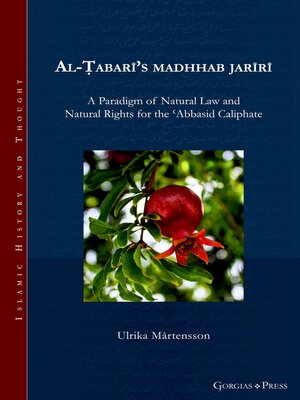Al-Ṭabarī's madhhab jarīrī
ebook ∣ A Paradigm of Natural Law and Natural Rights for the ʿAbbasid Caliphate · Islamic History and Thought
By Ulrika Mårtensson

Sign up to save your library
With an OverDrive account, you can save your favorite libraries for at-a-glance information about availability. Find out more about OverDrive accounts.
Find this title in Libby, the library reading app by OverDrive.



Search for a digital library with this title
Title found at these libraries:
| Loading... |
The book analyses the works of Muḥammad b. Jarīr al-Ṭabarī (224/839–310/923) as expressions of the theory of natural law and natural rights, and its corollary theories of politics and social contract, language and rhetoric, hermeneutics, metaphysics, ontology, epistemology, and ethics. Through this approach, the author argues that al-Ṭabarī's scholarship constitutes not only sources of information about the rise and early development of Islam and Islamic polities and disciplines, but theoretically informed analysis of sources and scripture as well. As such, al-Ṭabarī's works offer important contributions to current research into early Islamic history, law, administration, and the Qur'an. A preliminary effort is also made to historically trace al-Ṭabarī's theoretical paradigms to a continuum of translation and commentary on Aristotle's works. The starting point is the mid-500s CE in the Sassanid empire and the Arab polities within its domain, i.e., the Lakhmid kingdom and its administrative links with Hijaz, and the end point is the mid-300s H/900s CE in the Abbasid Caliphate. Alongside this theoretical legacy, the author plots both the Qur'an and al-Ṭabarī's works, including his famous Qur'an commentary. Special attention is also devoted to relations between theory and practice, concerning ownership of lands, the land tax, redistribution and the common good, conditions for agriculture, and peasants' rights.






